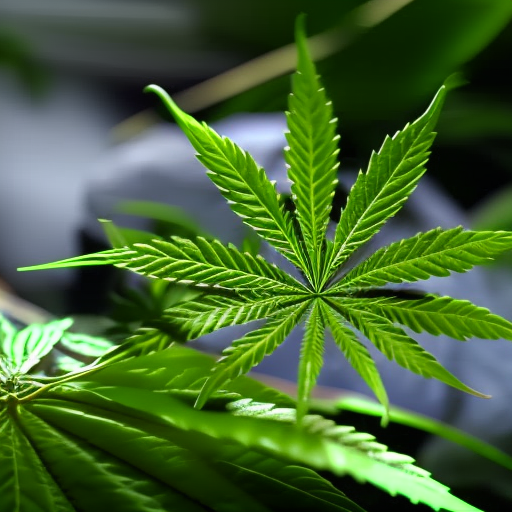 A recent report has examined the impact of CBD access on opioid prescriptions and has concluded that while legalizing CBD may not directly reduce opioid prescribing rates, the ability to access and purchase legal CBD products has led to a 6.6 percent to 8.1 percent decrease in opioid prescriptions.
A recent report has examined the impact of CBD access on opioid prescriptions and has concluded that while legalizing CBD may not directly reduce opioid prescribing rates, the ability to access and purchase legal CBD products has led to a 6.6 percent to 8.1 percent decrease in opioid prescriptions.
The study, conducted by economists at Wofford College in South Carolina and California State University Bakersfield, suggests that state-level legalization of CBD products only leads to a statistically significant reduction in opioid prescriptions when states also allow for open and legal dispensaries. This indicates that adequate supply-side access is necessary to fully realize the potential benefits of CBD legalization.
The researchers found that legal and open dispensaries selling CBD products reduced opioid prescribing rates by nearly 3.5 percent two years after legalization. However, they noted that strict limits on CBD purchases, such as through ID requirements or patient registries, blunted this impact.
The study focused on varying state laws around limited-access, CBD-only laws between 2010 and 2019. These laws allow for the prescribing of certain CBD products to patients based on specific identifiable medical conditions. The researchers noted that during this period, there were shifting market dynamics around CBD products, with over-the-counter (OTC) usage being the fastest-growing segment of the market. However, OTC CBD products were largely unavailable until later in the study period.
The authors acknowledged the quickly changing legal landscape around CBD and other hemp-derived cannabinoids and recognized that their findings are limited but still useful. They suggested further research on the impacts of CBD is warranted, particularly considering the wide range of quality and current confusion regarding the largely unregulated market.
While access through CBD dispensaries appeared to reduce opioid prescriptions significantly, this benefit disappeared if strict rules governed access to CBD. Additional regulations such as patient registries or ID requirements were found to nearly entirely negate the opioid-reducing benefits of creating supply-side CBD access through dispensaries.
The report found that CBD-only legalization did reduce opioid prescription rates, but not as much as comprehensive medical marijuana laws (MMLs) or recreational marijuana laws (RMLs). However, the data was somewhat noisy, and the study suggested that the difference in opioid usage rates may not be solely due to the presence of legal marijuana.
Overall, opioid prescription rates fell during the study period, likely driven by the ongoing spike in opioid-related overdose deaths. States with medical marijuana laws saw a 35 percent reduction in opioid prescribing rates between 2010 and 2018, while states with no form of marijuana legalization also saw a 33 percent decrease.
The researchers concluded that their findings provide important preliminary evidence that CBD may reduce opioid prescription rates and act as net substitutes for opioids. However, they emphasized the need for further research and suggested that policymakers should consider the costs of regulation and carefully balance the tradeoffs between ensuring the quality of and restricting access to CBD.
The impact of cannabis reform on opioid use and prescription rates has been an area of investigation and debate for some time. Previous research has indicated that expanding access to cannabis has led to declines in opioid use. Recent studies have linked medical marijuana use to lower pain levels and reduced dependence on opioids and other prescription medications. Other studies have found that chronic pain patients who received medical marijuana saw significant reductions in prescribed opioids.
State-level marijuana legalization has also been associated with major reductions in prescribing opioids.
Anecdotal reports, data-based studies, and observational analyses have all indicated that some people use cannabis as an alternative to traditional pharmaceutical drugs such as opioid-based painkillers.
In conclusion, while legalizing CBD alone may not directly reduce opioid prescribing rates, the ability to access and purchase legal CBD products can lead to a decrease in opioid prescriptions. The presence of legal and open dispensaries selling CBD products seems to have the most significant impact on reducing opioid prescriptions. However, strict regulations on CBD purchases can negate these benefits. Further research is needed to fully understand the impacts of CBD and to assess its potential in addressing the opioid crisis.

